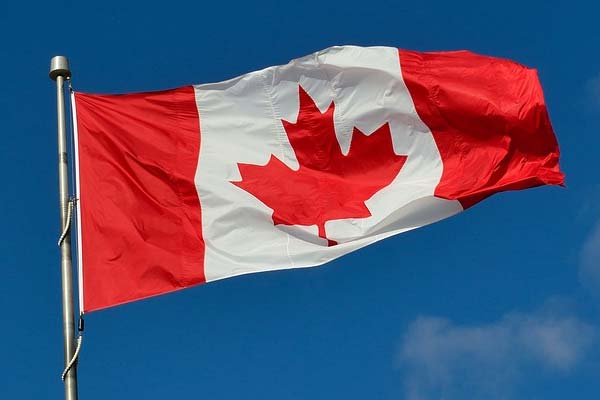Does Canada Accept IGCSE? Recognition, Equivalent & Subjects!
Cambridge International Examinations is a popular choice for students worldwide pursuing higher education.
The IGCSE is equivalent to the Canadian high school diploma in Canada. However, numerous students continue to assess the recognition of their IGCSE qualifications in Canada. The response is affirmative, yet comprehending the prerequisites and regulations of specific institutions is crucial.
According to Cambridge Assessment International Education, many Canadian colleges and universities accept IGCSEs and O Levels as meeting entry requirements for local and international students.
However, it’s crucial to check directly with your target institution to ensure that you meet their specific admissions requirements. Additionally, some programs may have additional subject requirements beyond the minimum academic subjects needed for admission.
How Many Igcse Subjects Are Required in Canada?
For example, the University of Toronto requires at least five different IGCSE/GCSE/Ordinary Level academic subjects, four Advanced Subsidiary (AS) academic subjects, or three additional Advanced Level (A-Level)/International Advanced Level academic subjects. English IGCSE/GCSE/Ordinary/AS/A Level is required for all programs.
Other universities may have different requirements, so it’s essential to research and contact the admissions office for clarification.
Canadian Education System
Canada has a well-developed education system that is highly regarded globally. The country’s education system is overseen by the provincial and territorial governments, responsible for establishing their education systems and curriculum.
This means there are some differences in education systems between the provinces, but they all follow the same general structure.
The Canadian education system is divided into primary, secondary, and post-secondary levels. Primary and secondary education is compulsory and free for all children in Canada, and post-secondary education is offered at universities, colleges, and vocational schools.
Provincial Education Authority and Curriculum Differences
Each province and territory in Canada has its education authority responsible for setting and enforcing curriculum standards.
This means that there can be some differences in the curriculum between provinces. For example, the Ontario Curriculum is used in Ontario, while the Quebec Education Program is used in Quebec.
🌟 Hey Students! 🚀 Ready for the ultimate experience? Join us on Studentsinside.com's Facebook, YouTube, WhatsApp, and LinkedIn. Click now for tips, fun, and success vibes! 🌈✨ #StudentLife #JoinUs
Despite these differences, the education systems in each province and territory are designed to meet the same high standards. This means that students who move between provinces can generally receive a similar level of education, even if the curriculum is slightly different.
Overview of Canada’s Education System
The Canadian education system is highly regarded globally for its high standards and emphasis on student-centered learning. The education system is designed to promote critical thinking, problem-solving, and creativity and to prepare students for success in the 21st century.
In Canada, primary and secondary education is compulsory for all children, and students generally begin their education at the age of five or six. The primary education system is designed to provide students with a strong reading, writing, and mathematics foundation.
In contrast, secondary education is designed to prepare students for post-secondary education or the workforce.
Canada offers post-secondary education through universities, colleges, and vocational schools, which provide diverse academic and vocational programs leading to degrees, diplomas, or certificates across various fields of study.
Recognizing IGCSE in Canada
IGCSE is a globally recognized qualification equivalent to the Canadian high school diploma. Many Canadian universities and colleges recognize IGCSE certificates for admission purposes. However, the recognition process may vary depending on the institution and the province.
The credential evaluation process is critical in determining the recognition of IGCSE certificates in Canada.
The International Credential Assessment Service of Canada (ICAS) is a designated assessment agency that evaluates foreign educational credentials to determine their Canadian equivalency.
Canadian universities and colleges widely recognize ICAS and can provide an accurate evaluation of IGCSE certificates.
It is important to note that the role of designated assessment agencies is to evaluate foreign educational credentials rather than determine Canadian institutions’ admission requirements.
Hence, it’s crucial to review the admission prerequisites of the relevant institution before applying, as these criteria can differ based on the program, province, and school.
In Canada, many universities and colleges recognize IGCSE certificates for admission purposes.
For example, the University of Toronto requires a minimum of five different IGCSE/GCSE/Ordinary Level academic subjects and four other Advanced Subsidiary (AS) academic subjects or three additional Advanced Level (A-Level)/International Advanced Level academic subjects. English IGCSE/GCSE/Ordinary/AS/A Level is required for all programs.
IGCSE in University Admissions
Cambridge International students interested in studying in Canada may wonder whether Canadian universities will accept their IGCSE qualifications.
The good news is that many universities in Canada do accept IGCSE qualifications as meeting entry requirements for undergraduate studies.
For instance, the University of Toronto requires at least five different IGCSE/GCSE/Ordinary Level academic subjects, four Advanced Subsidiary (AS) academic subjects, or three additional Advanced Level (A-Level)/International Advanced Level academic subjects. English IGCSE/GCSE/Ordinary/AS/A Level is required for all programs.
Toronto Metropolitan University (TMU) requires a minimum of three subject areas at the GCSE/IGCSE/O Level. One subject should have a final grade of at least ‘B/6’, while the other two should have a final grade of ‘C/4’ or higher.
However, It’s important to recognize that admission criteria can differ based on the institution and program you’re interested in. To get the latest information on admissions requirements and policies for both local and international students, it’s recommended to consult your desired educational institution or study location directly.
Fortunately, there are resources available for assessing IGCSE equivalency in Canada. For example, the Canadian Information Centre for International Credentials (CICIC) provides information on how international credentials are assessed and recognized in Canada.
The CICIC also provides a directory of assessment services to evaluate international credentials, including IGCSE qualifications.
Admission to Canadian Universities
Canadian universities are famous for their high academic standards and rigorous admission requirements. Students who wish to study in Canada with IGCSE qualifications should be aware of the admission requirements set by each university.
Applying with IGCSE Qualifications
Canadian universities accept IGCSE qualifications for admission purposes. However, students need to meet the minimum admission requirements for each university. The admission requirements vary by institution, and students should check with their target university for the specific requirements.
Importance of Supplementary Documents
In addition to IGCSE qualifications, students must provide supplementary documents such as transcripts, test scores, and letters of recommendation. These documents provide a comprehensive picture of the student’s academic background, achievements, and potential.
Students must submit all required documents to the university before the application deadline. Please complete the documents to ensure the application process and avoid rejection.
IGCSE and Employment
Canadian employers highly regard IGCSE as proof of academic success and appreciate its representation of diverse skills and knowledge.
Relevance in the Canadian Job Market:
In Canada, the job market is highly competitive, and job seekers must have various skills and qualifications to stand out. IGCSE is a qualification that can help job seekers differentiate themselves from others. IGCSE is recognized by many employers in Canada, and it can be an advantage for job seekers who hold this qualification.
Industries Valuing International Qualifications:
Many industries in Canada value international qualifications like IGCSE. These industries include healthcare, engineering, finance, and information technology.
In these industries, employers often require job seekers to have a range of qualifications, including international qualifications like IGCSE.
Challenges and Planning
Recognizing IGCSEs as a valid qualification has been a challenge for international students who wish to study in Canada. Although many Canadian universities accept IGCSEs and Cambridge O Levels, there is no guarantee that all institutions will recognize them.
Therefore, checking with the target institution and/or study destination for up-to-date admissions requirements and policies for local and international students is essential.
Addressing IGCSE recognition challenges requires a strategic approach. It is crucial to identify the obstacles that may arise and plan accordingly.
For instance, some universities may require additional qualifications or standardized tests to supplement IGCSEs. In such cases, students must plan and prepare for these other requirements.
Strategies for overcoming obstacles include:
- Researching the admission requirements of the target institution.
- Contacting the admissions office for clarification.
- Seeking guidance from educational consultants or agents.
Additionally, students can consider taking additional courses or standardized tests to supplement their IGCSEs and improve their chances of admission.
Resources for IGCSE Students
Suppose you are an international student who has completed or is planning to complete the IGCSE and are interested in studying in Canada. In that case, several resources are available to help you navigate the admission process.
Credential Assessment Agencies
Before applying to a Canadian university, it is crucial to have your academic credentials assessed by a recognized credential assessment agency. These agencies evaluate foreign qualifications and determine their Canadian equivalency.
This is important because Canadian universities may have specific admission requirements based on the Canadian equivalency of your academic credentials.
Some of the recognized credential assessment agencies in Canada are:
- International Credential Assessment Service of Canada (ICAS)
- World Education Services (WES)
- Comparative Education Service (CES)
It is important to note that each agency may have different fees, processing times, and requirements. Therefore, it is recommended to research and compare various agencies before selecting one.
Online Tools
In addition to credential assessment agencies, several online tools are available to help you evaluate your foreign qualifications and determine their Canadian equivalency.
These tools can help provide a general idea of your academic standing in Canada and can be used as a starting point in the admission process.
Some of the online tools available are:
- Canadian Information Centre for International Credentials (CICIC) – provides information on credential assessment, recognition, and equivalency in Canada.
- International Qualifications Assessment Service (IQAS) – provides assessments of international education credentials and compares them to educational standards in Canada.
- WES Degree Equivalency Tool – provides a general idea of the Canadian equivalency of foreign degrees
It is important to note that these tools should not be used as a substitute for a formal credential assessment by a recognized agency. However, they can be a helpful resource in understanding the Canadian education system and admission requirements.








